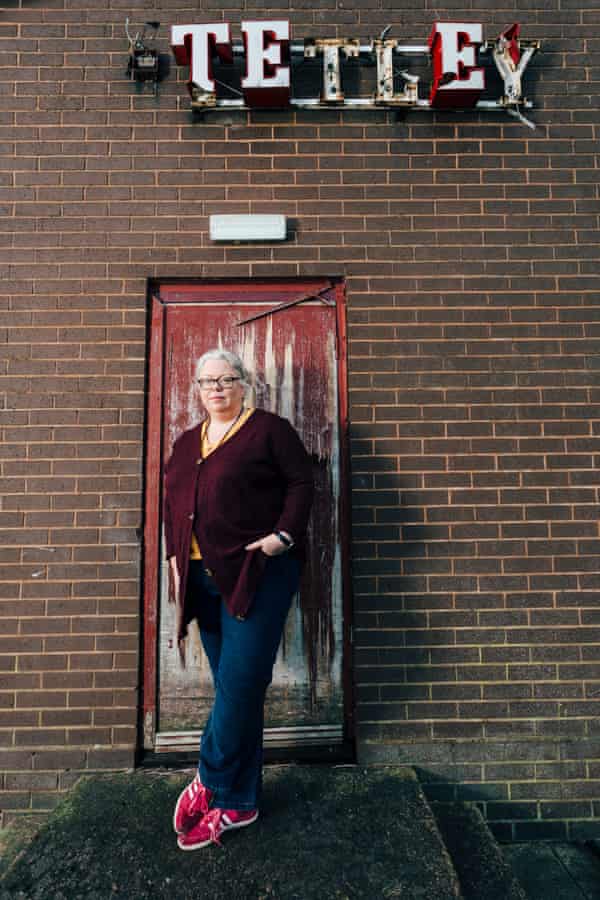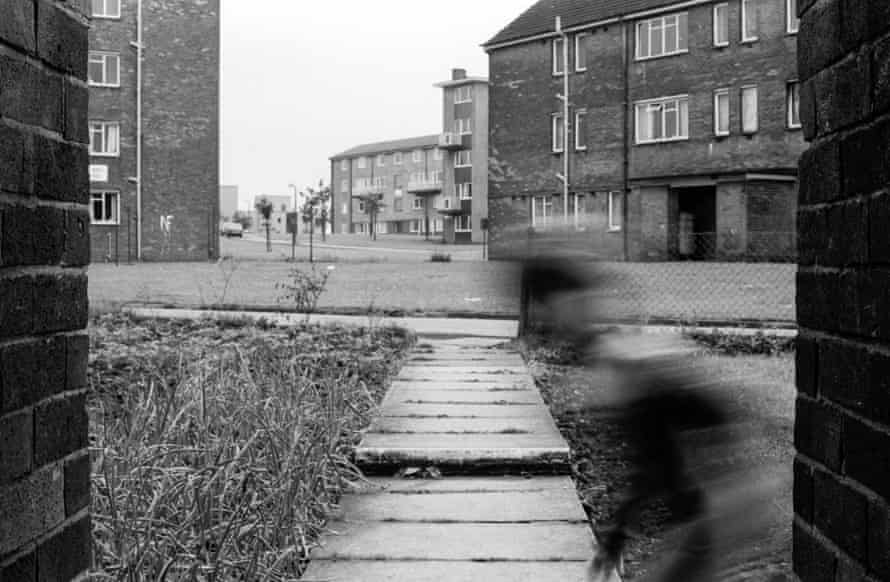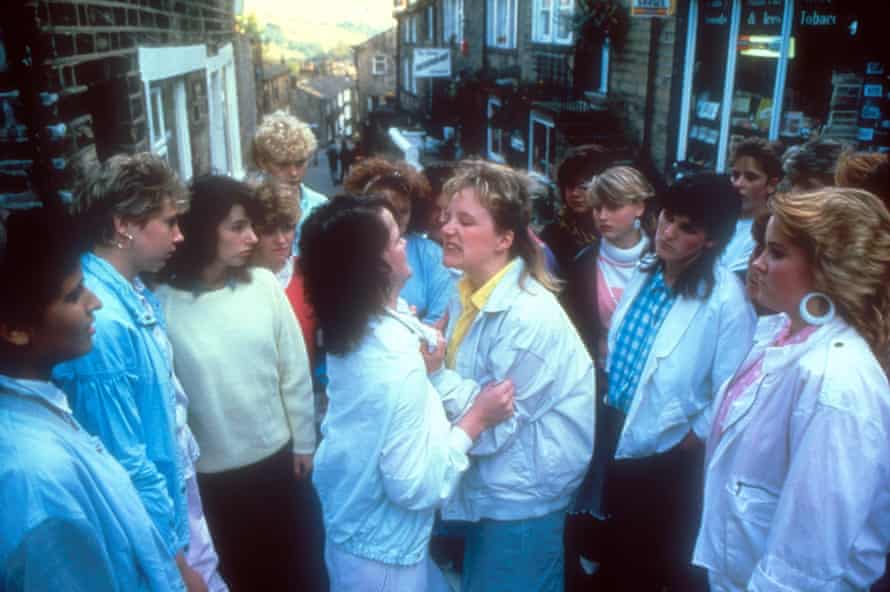 |
| Andrea Dunbar |
Andrea Dunbar's life story to be staged in Bradford pub
New drama Black Teeth and a Brilliant Smile looks back at the life of the playwright who wrote Rita, Sue and Bob Too
Mon 10 Dec 2018 06.00 GMT
A new drama is to revisit the life and early death of Andrea Dunbar, the playwright who became a sensation with Rita, Sue and Bob Too, a dark comedy inspired by the Yorkshire housing estate where she lived. The play, written by Lisa Holdsworth, will be staged in a pub in Dunbar’s native Bradford in May next year. It is adapted from Black Teeth and a Brilliant Smile, Adelle Stripe’s strikingly atmospheric novel about Dunbar, which captures Dunbar’s experience of poverty and abuse, her quick wit and her flair as a playwright. Holdsworth says her adaptation doesn’t give a voice to the men who mistreated Dunbar but instead focuses on “women’s relationships and how they quietly get on with things and get things done”.
Stripe’s novel was acclaimed on publication in 2017. Its title was borrowed from a description of Dunbar in a Mail on Sunday article that dubbed her “a genius straight from the slums”. The book primarily tells Dunbar’s story in the third person and sparingly imagines events from her point of view. Holdsworth, who has previously written for the TV shows Emmerdale and Ackley Bridge, says that her stage adaptation will be “Andrea telling her story”.

“We made the decision fairly early on that it would be Andrea’s voice throughout. We didn’t want to put the various men who treated her badly across the years on stage – or to hear their voices. It’s very much from her perspective and from the women in her life who helped her along the way.”
A cast of five will share the roles, with two actors playing young and older versions of Dunbar. The play charts how she shot to fame as a teenager with The Arbor, an autobiographical drama about a pregnant girl and her alcoholic father. It started as a school assignment, written in green Biro on pages torn from an exercise book, and was submitted to the Royal Court’s Young Writers festival. Dunbar became the youngest writer to have a play staged at the Royal Court when it opened there in 1980, directed by Max Stafford-Clark. It was followed by Rita, Sue and Bob Too (1982), about the sexual relationship between two teenage babysitters and a married man, and a third and final play, Shirley (1986).
Dunbar died after suffering a brain haemorrhage in 1990 at the age of 29. She collapsed in her local pub, the Beacon, where she had often written and sought inspiration for her work. Commissioned by Freedom Studios and directed by Kash Arshad, Black Teeth and a Brilliant Smile will open at the Ambassador pub, in Sunbridge Road, Bradford, on 30 May. It will then tour to theatres, including dates at Cast in Doncaster and Oldham Coliseum. The decision to put it on first in a pub, says Holdsworth, was to show how “those places were a hub for communities – not always in a positive way, as gossip got passed around and conflicts would flare up – but for collective moments”.
One of the women portrayed on stage in Black Teeth and a Brilliant Smile will be the writer Kay Mellor, who knew and encouraged both Holdsworth and Dunbar. Holdsworth worked as Kay’s PA for several months before writing for Mellor’s TV series Fat Friends.
In her play, Holdsworth also wanted to concentrate on Dunbar’s mother, Alma. “I think one of the most important sections of the book is when Alma refuses to let the school send Andrea away [when she is pregnant with her first child]. It must have been really hard for a working-class woman to stand up against a headteacher, a man in a position of authority, and do what she thought was right for her daughter. Alma is a very strong character – I wanted to bring her into the foreground.”

Holdsworth grew up in Pudsey, which is between Leeds and Bradford, and read Dunbar’s plays at school. As a teenager, she watched Alan Clarke’s film of Rita, Sue and Bob Too: “It was one of those videos that got passed round as being a bit naughty. It got quoted a lot at school.”
But Dunbar was unhappy with the depiction of her characters and of the estate in Clarke’s film. Holdsworth says that Dunbar had an “eternal frustration” with the way her community was represented in a negative light. When she lived away from the estate, she was “always desperate to get back to Buttershaw,” says Holdsworth. “That community was important to her. She wanted to represent it – and people got in the way of her representing it.”
Dunbar stood out in the 1980s because she was a young, female, working-class voice. Holdsworth doesn’t believe things are any better for today’s Dunbars. “In TV, which should be a natural place for working-class writers, it’s just appalling. That feeling of the lack of representation. That’s why it’s so exciting that Channel 4 are coming to Leeds. You hope that they’ll hear voices in their authentic place of being and will want to represent that on screen.”

As Stripe’s book makes clear, Dunbar’s talent was nurtured at school by a teacher who spotted her potential. “Andrea had a teacher who saw a talent that couldn’t be measured in CSE marks and they developed that talent,” says Holdsworth, who criticises our “obsession with exam results” today. “I don’t think that would happen now. There aren’t the resources or the time for teachers to single out someone with a unique talent.”
Last year, there was controversy when the Royal Court initially cancelled a revival of Rita, Sue and Bob Too as the reverberations of #MeToo were felt throughout the theatre industry and it was revealed that Max Stafford-Clark, who had championed Dunbar and first directed the play in 1982, was ousted from his company Out of Joint in 2017 over allegations of inappropriate behaviour.
After an outcry, the revival was subsequently reinstated. But Holdsworth believes that the subsequent critical response to the play “mirrored what had gone on the first time the play came out”, with reviewers suggesting that “it’s all a bit unseemly”. Her play, says Holdsworth, will let Dunbar “speak for herself to a certain extent and redress the balance. I’m honoured that Freedom Studios are giving me the chance. I certainly feel the weight of the responsibility on me.”
THE GUARDIAN

No comments:
Post a Comment